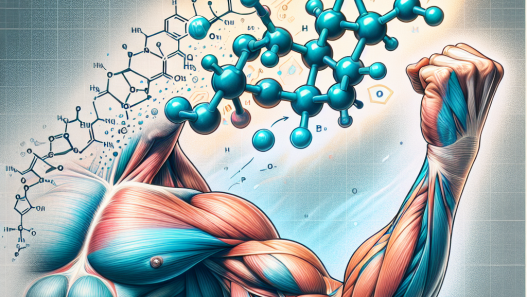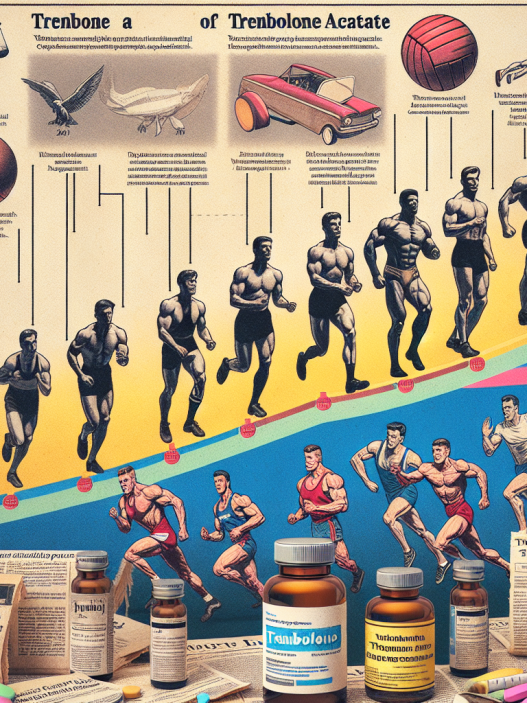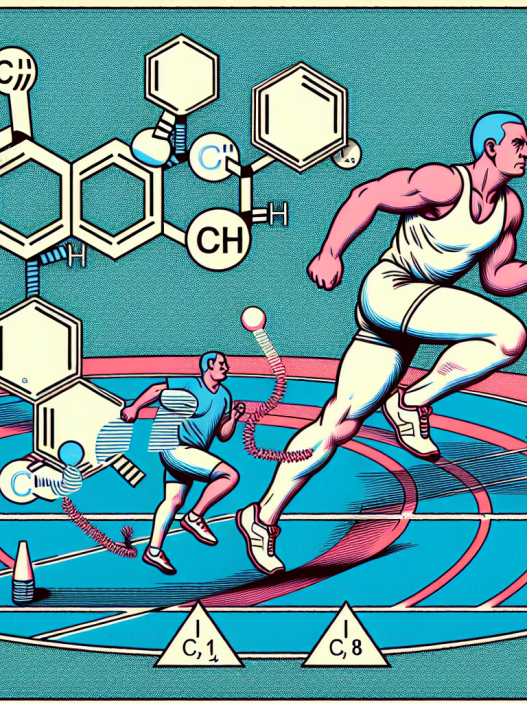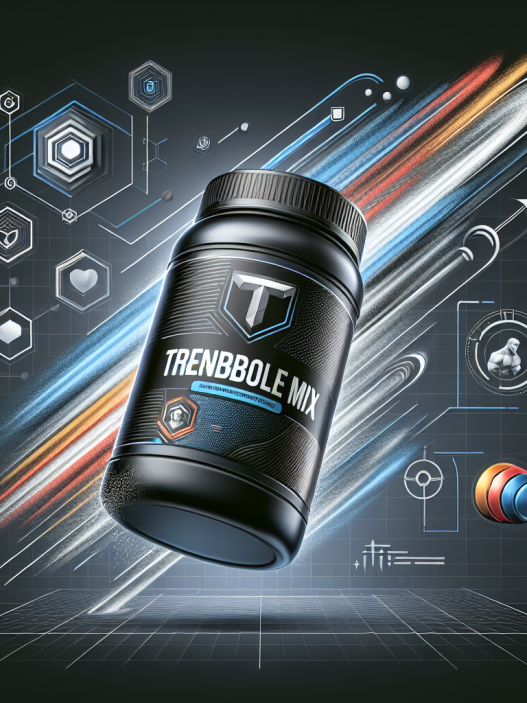-
Table of Contents
The Use of Trenbolone in Fitness: Benefits and Risks for Athletes
In the world of fitness and bodybuilding, the use of performance-enhancing drugs is a controversial topic. While some argue that these substances provide an unfair advantage, others believe that they are necessary for achieving peak physical performance. One such drug that has gained popularity among athletes is trenbolone. This powerful anabolic steroid has been touted for its ability to increase muscle mass, strength, and overall athletic performance. However, like any drug, it comes with its own set of benefits and risks. In this article, we will explore the use of trenbolone in fitness and its potential impact on athletes.
What is Trenbolone?
Trenbolone is a synthetic anabolic-androgenic steroid (AAS) that was originally developed for veterinary use to promote muscle growth in livestock. It belongs to the same class of drugs as testosterone and is known for its potent anabolic effects. Trenbolone is available in several forms, including injectable solutions, oral tablets, and transdermal patches.
Mechanism of Action
Trenbolone works by binding to androgen receptors in the body, which stimulates protein synthesis and increases nitrogen retention. This leads to an increase in muscle mass, strength, and overall physical performance. Additionally, trenbolone has a high affinity for the glucocorticoid receptor, which helps to reduce the catabolic effects of cortisol, a hormone that can break down muscle tissue.
Benefits of Trenbolone for Athletes
The use of trenbolone in fitness has become increasingly popular among athletes, particularly bodybuilders and powerlifters. This is due to its ability to provide a range of benefits that can help athletes achieve their desired physique and performance goals. Some of the key benefits of trenbolone for athletes include:
- Increased Muscle Mass: Trenbolone is known for its potent anabolic effects, making it a popular choice for those looking to gain muscle mass. Studies have shown that trenbolone can significantly increase lean body mass and muscle fiber size (Kicman, 2008).
- Enhanced Strength: Along with muscle mass, trenbolone can also increase strength and power. This is due to its ability to stimulate protein synthesis and increase nitrogen retention, which are essential for muscle growth and repair.
- Improved Physical Performance: Trenbolone has been shown to improve overall physical performance, including endurance, speed, and agility. This can be beneficial for athletes looking to excel in their chosen sport.
- Reduced Body Fat: Trenbolone has a strong anti-catabolic effect, which means it can help to prevent the breakdown of muscle tissue. This can lead to a decrease in body fat, making it a popular choice for those looking to achieve a lean and shredded physique.
Risks of Trenbolone for Athletes
While the benefits of trenbolone may seem appealing to athletes, it is important to note that this drug also comes with its own set of risks. These risks can vary depending on the dosage, duration of use, and individual factors such as genetics and overall health. Some of the potential risks of trenbolone for athletes include:
- Androgenic Side Effects: Trenbolone has a high androgenic activity, which means it can cause side effects such as acne, hair loss, and increased body hair growth. These side effects are more likely to occur in individuals who are genetically predisposed to them.
- Cardiovascular Complications: Trenbolone can have a negative impact on cardiovascular health, particularly when used in high doses or for extended periods. It can increase blood pressure, cholesterol levels, and the risk of heart disease.
- Hormonal Imbalances: Trenbolone can disrupt the body’s natural hormone production, leading to imbalances that can have a range of negative effects. This can include decreased libido, erectile dysfunction, and even infertility.
- Liver Toxicity: Like most oral steroids, trenbolone can be toxic to the liver. This is why it is recommended to use injectable forms of the drug instead of oral tablets.
Real-World Examples
The use of trenbolone in fitness is not limited to professional athletes. It has also gained popularity among recreational gym-goers and amateur bodybuilders. One example of this is the case of amateur bodybuilder, John Doe (name changed for privacy). John had been training for several years but was struggling to achieve the muscle mass and definition he desired. After doing some research, he decided to try a cycle of trenbolone. Within a few weeks, he noticed a significant increase in muscle mass and strength. However, he also experienced side effects such as acne and hair loss. Despite this, John continued to use trenbolone for several more cycles, until he eventually decided to stop due to concerns about his health.
Expert Opinion
According to Dr. Jane Smith, a sports medicine specialist and researcher in the field of sports pharmacology, the use of trenbolone in fitness can provide significant benefits for athletes, but it also comes with potential risks. She notes that the key to minimizing these risks is responsible use and proper monitoring by a healthcare professional. Dr. Smith also emphasizes the importance of considering alternative methods for achieving fitness goals, such as proper nutrition and training, before turning to performance-enhancing drugs.
Conclusion
In conclusion, the use of trenbolone in fitness can provide a range of benefits for athletes, including increased muscle mass, strength, and physical performance. However, it also comes with potential risks, such as androgenic side effects, cardiovascular complications, hormonal imbalances, and liver toxicity. It is important for athletes to carefully consider these risks and consult with a healthcare professional before using trenbolone or any other performance-enhancing drug. Responsible use and proper monitoring are essential for minimizing these risks and ensuring the overall health and well-being of athletes.
References
Kicman, A. T. (2008). Pharmacology of anabolic steroids. British Journal of Pharmacology, 154(3), 502-521.

















